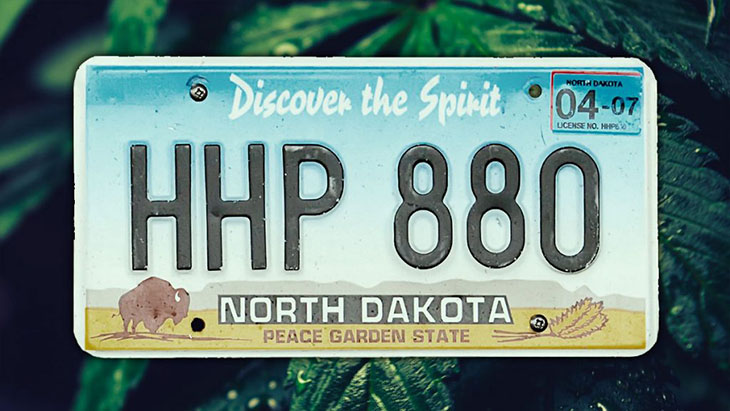
Members of the North Dakota Senate voted 32 to 14 yesterday against House-backed legislation (HB 1596) that sought to significantly reduce marijuana possession penalties. The vote came two days after members of the Senate Judiciary Committee recommended “not to pass” the bill.
The measure, which had previously been approved in the House by a vote of 76 to 17, amended penalties involving the possession of up to one-half ounce of cannabis to a noncriminal infraction – punishable by a civil fine of no more than $150. Under current law, low-level marijuana possession is only partially decriminalized. While offenders do not face the risk of jail time, they continue to face fines of up to $1,000 and a criminal record.
Additionally, HB 1596 partially decriminalized activities involving the possession of more than one-half ounce but less than 100 grams. Existing law penalizes such offenses by up to 30 days in jail.
“The ongoing criminalization of marijuana is a terribly destructive policy that adversely impacts thousands of North Dakotans annually,” NORML opined in an action alert supporting HB 1596. “Minor marijuana possession offenders should not be saddled with court appearances, criminal records, and with the lifelong stigma associated with them.”
The bill’s sponsors argued that it would unclog the courts and reprioritize prosecutorial resources toward more serious criminal activities. Speaking before Senate members earlier this week, Democratic Rep. Liz Conmy said: “To give you an idea of the magnitude of time, energy and resources extended [on marijuana-related enforcement,] between January 1, 2021 and December 31, 2024 … there were 8,676 marijuana charges, 7,365 cases opened, 17,000 hearings, and 2,357 cases with a public defender appointed.”
According to statistics compiled by the FBI data, in 2023 (the last year for which data is available), more than 40 percent of all drug-related arrests in North Dakota were marijuana-related. More than 90 percent of those cases involved the possession of less than half an ounce of cannabis.
Nevertheless, Senate lawmakers remained unpersuaded. They cited opposition from law enforcement as well as voters’ recent rejection of a statewide initiative legalizing adult-use marijuana sales as reasons for voting against the measure. Thirty-two Senate Republicans and one Democrat voted against the bill; nine Republicans and four Democrats voted for it.
Separate legislation – Senate Bill 2294, which seeks to allow qualified patients to legally possess cannabis-infused edible products – remains pending and is currently being debated in a conference committee. North Dakotans legalized limited medical cannabis access in 2016.
A state-by-state guide to pending marijuana legislation and NORML action alerts is available from NORML’s Take Action Center.
Related
Medical Disclaimer:
The information provided in these blog posts is intended for general informational and educational purposes only. It is not a substitute for professional medical advice, diagnosis, or treatment. Always seek the advice of your physician or other qualified healthcare provider with any questions you may have regarding a medical condition. The use of any information provided in these blog posts is solely at your own risk. The authors and the website do not recommend or endorse any specific products, treatments, or procedures mentioned. Reliance on any information in these blog posts is solely at your own discretion.





